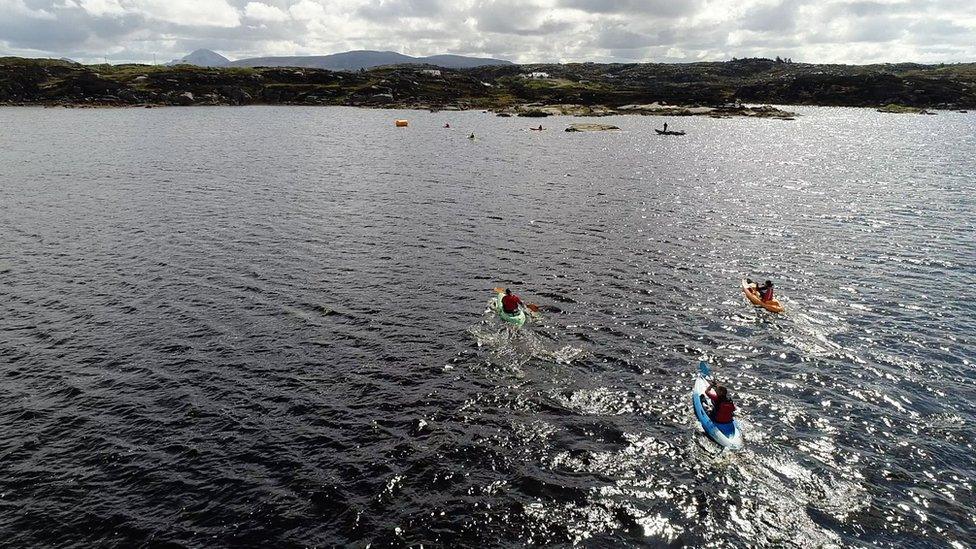Coronavirus: Donegal Covid-19 restrictions 'could be extended'
- Published
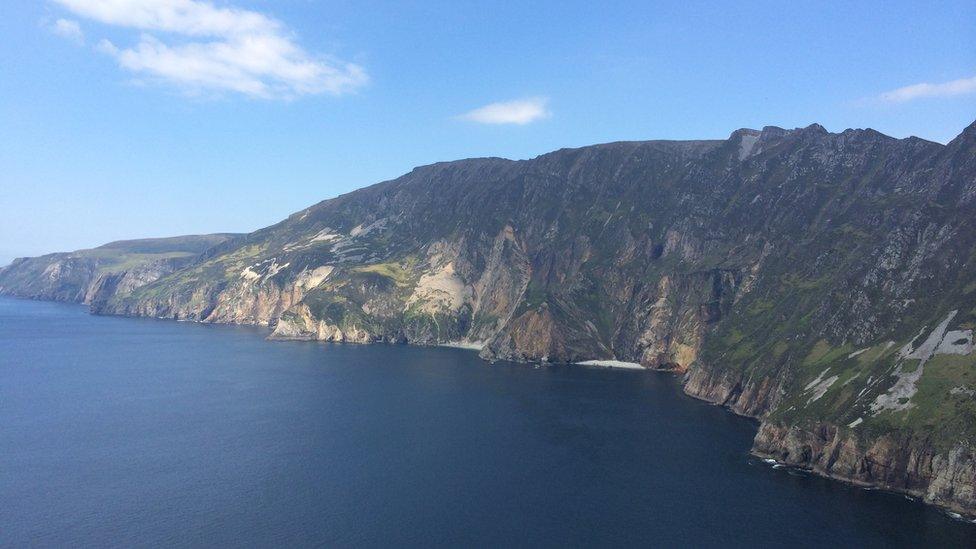
Covid-19 restrictions in County Donegal, and across the Republic of Ireland, are due to come to an end at the start of December
New localised measures to combat Covid-19's spread could be imposed on the Irish border county of Donegal if wider national restrictions are eased, a leading GP has said.
Donegal's 14-day incidence of the disease has risen to 281 confirmed cases per 100,000 people., external
It is the highest rate in the Republic of Ireland and more than twice the national figure of 135.
Dr Denis McCauley said it could see restrictions extended into December.
On Friday, Taoiseach (Irish prime minister) Micheál Martin said he hoped the country would be in a position to take a nationwide approach to exiting lockdown.
But he added: "We are concerned in terms of the figures in Donegal and we'll be making extra efforts there to see if we can, in terms of communication and so on, get the numbers down.
"We'd like preferably to come out at a national level."
Dr McCauley, chairman of the Irish Medical Organisation's GP Committee said GPs in the county were "very worried to see government's attention once again turning to Donegal".
"This could end up meaning extension of restrictions here when everywhere else in the country opens up again," he told BBC News NI.
The county moved to level three of the country's five-level alert system in mid-October to combat a surge in the number of coronavirus cases.
Restrictions tightened further just days later when the Irish government moved the entire country to level five.
Those nationwide measures are due to end at the start of December.
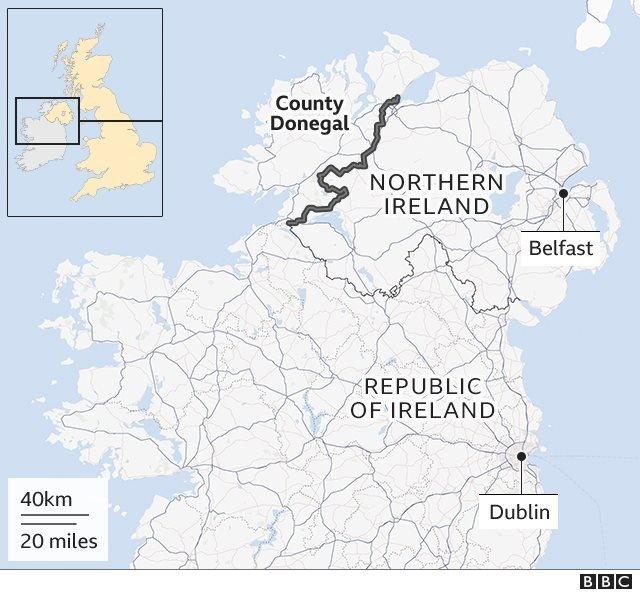
But in parts of Donegal, Dr McCauley said, after six weeks of restrictions, the rate of infection remains high.
Dr McCauley, who is a GP in the Donegal town of Stranorlar, said it is more pronounced in areas closest to the border with Northern Ireland.
"Practices in Newtowncunningham , Lifford-Stranorlar, Ballybofey are seeing high incidence rates - higher numbers in areas close to the border, numbers much lower in west Donegal," Dr McCauley said
"Proximity to the border is definitely an issue."
'Border troops'
On Thursday, a Louth TD suggested Irish army troops should be sent to the border to prevent travel between Northern Ireland and the Republic.
Speaking in the Dáil (Irish parliament), Independent TD for Louth Peter Fitzpatrick suggested hundreds of Defence Forces soldiers could patrol border crossings.
However Tánaiste (deputy prime minister) Leo Varadkar said the government is not giving any consideration to such a move.
"We struggled and fought too hard over many decades to take all armies off the border and we certainly don't want to be the jurisdiction that puts uniforms on the border again," said Mr Varadkar.
In a tweet on Saturday, the General Secretary Association of Garda Sergeants and Inspectors, Antoinette Cunningham, said that in some cases, drivers were not stopping at gardaí check points.
"Gardaí told me that people crossing the border are giving them the finger and telling them they don't have to stop," she posted.
Allow X content?
This article contains content provided by X. We ask for your permission before anything is loaded, as they may be using cookies and other technologies. You may want to read X’s cookie policy, external and privacy policy, external before accepting. To view this content choose ‘accept and continue’.
'Very worrying'
Prof Sam McConkey, an infectious disease specialist with the Royal College of Surgeons in Ireland, said the county was Ireland's "outlier".
"It has been under its own localised restrictions, and then national restrictions for some six weeks. That the rate has not come down is very worrying," he said.
"My understanding is that there have been a couple of large outbreaks - outbreaks of around 40 to 50 people - and that in turn causes a lot of secondary cases".
He too sees the border as an additional public health challenge.
Where you have movement of people, you have movement of the virus, he added.
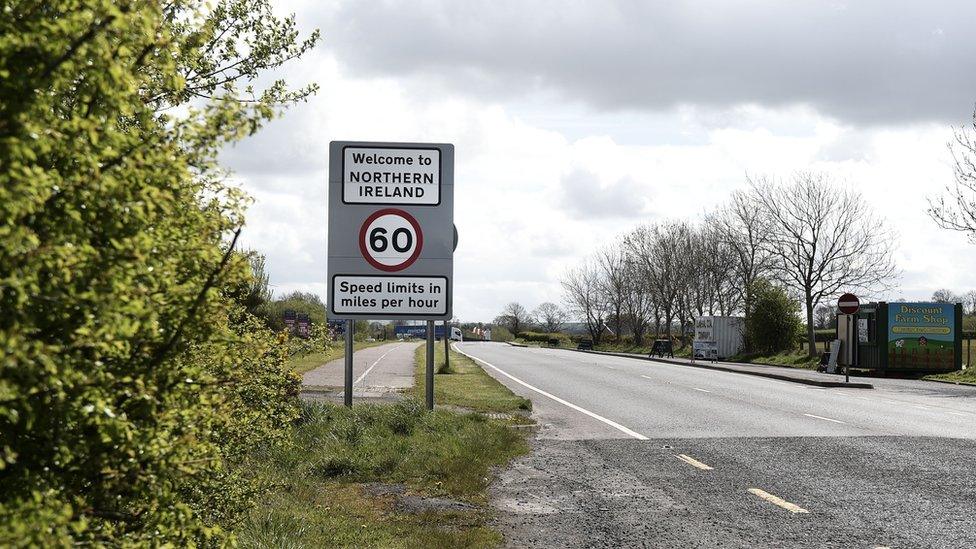
Prof McConkey said cross border co-operation between public health officials has improved during the pandemic
But the rate in Donegal is "significantly lower than in many parts of Northern Ireland", Prof McConkey said.
"People in NI may not fully realise how well controlled the virus is in the Republic," he said.
Prof McConkey said it is likely Donegal will stay under some form of restrictions however, when the level five measures come to an end.
"It is likely we will see the national restrictions lifted in December, but people in Donegal should prepare to still be under restrictions," he said.
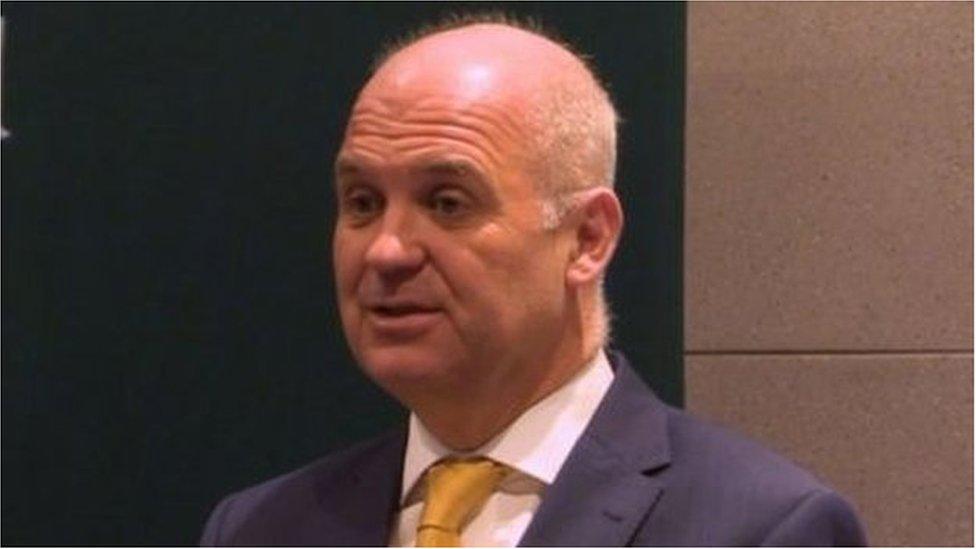
Ireland's Chief Medical Officer Dr Tony Holohan said there is "still time for significant improvement to take place"
Speaking on Thursday evening, Ireland's Chief Medical Officer Dr Tony Holohan said: "We still have a number of weeks to go between now and the end of the month and obviously there are still some parts of the country experiencing higher levels of transmission.
"There is still time for significant improvement to take place, not just in the country generally, but in Donegal".
Dr Holohan said transmission rates can fall quickly if the public "continue to observe and apply the messages in terms of our public health behaviour".
Related topics
- Published11 October 2020
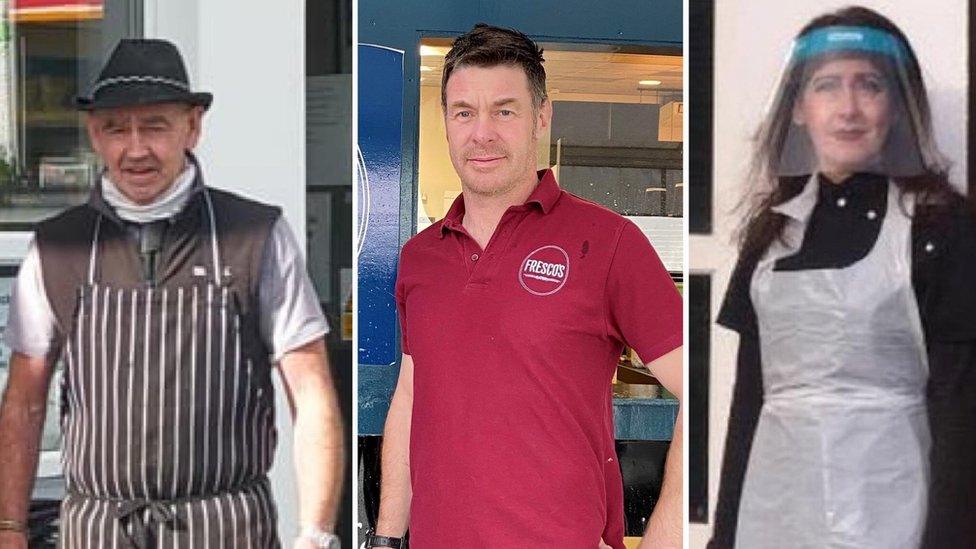
- Published19 October 2020
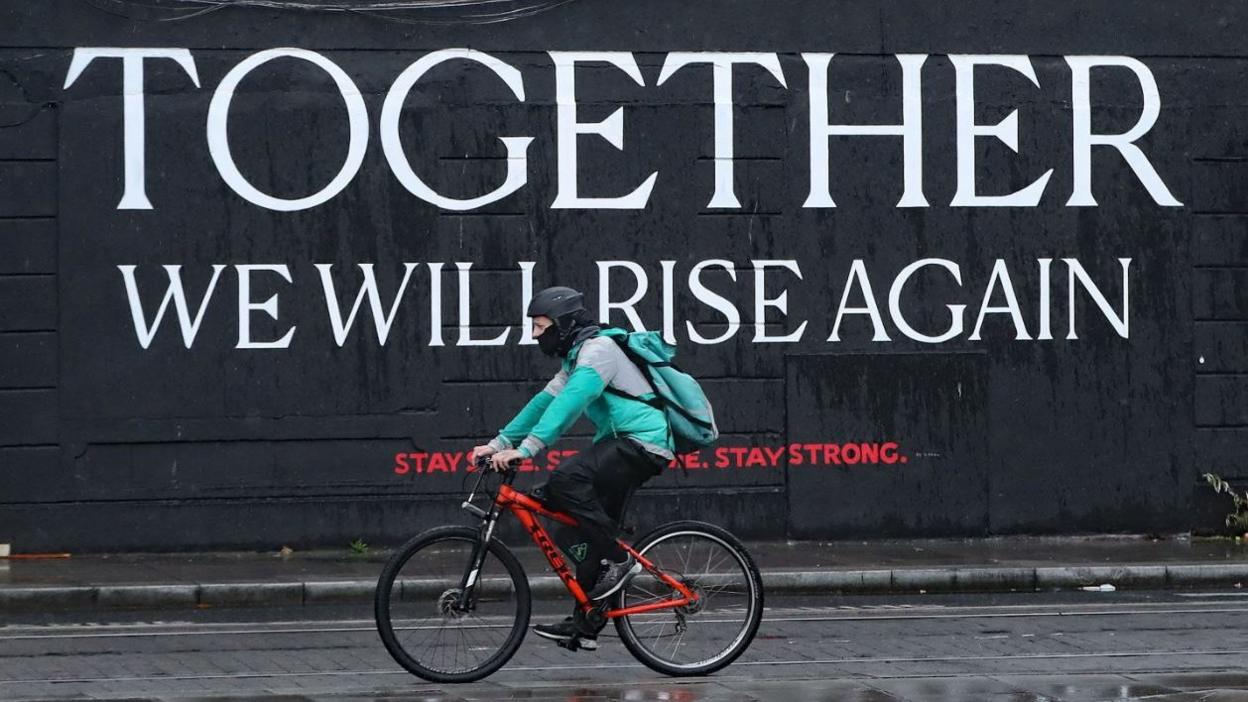
- Published24 September 2020
